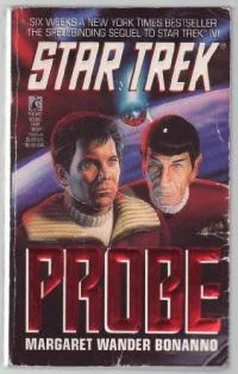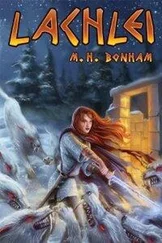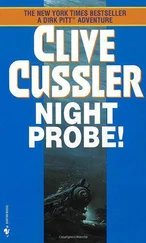Margeret Bonanno - Probe
Здесь есть возможность читать онлайн «Margeret Bonanno - Probe» весь текст электронной книги совершенно бесплатно (целиком полную версию без сокращений). В некоторых случаях можно слушать аудио, скачать через торрент в формате fb2 и присутствует краткое содержание. Жанр: Космическая фантастика, на английском языке. Описание произведения, (предисловие) а так же отзывы посетителей доступны на портале библиотеки ЛибКат.
- Название:Probe
- Автор:
- Жанр:
- Год:неизвестен
- ISBN:нет данных
- Рейтинг книги:4 / 5. Голосов: 1
-
Избранное:Добавить в избранное
- Отзывы:
-
Ваша оценка:
- 80
- 1
- 2
- 3
- 4
- 5
Probe: краткое содержание, описание и аннотация
Предлагаем к чтению аннотацию, описание, краткое содержание или предисловие (зависит от того, что написал сам автор книги «Probe»). Если вы не нашли необходимую информацию о книге — напишите в комментариях, мы постараемся отыскать её.
Probe — читать онлайн бесплатно полную книгу (весь текст) целиком
Ниже представлен текст книги, разбитый по страницам. Система сохранения места последней прочитанной страницы, позволяет с удобством читать онлайн бесплатно книгу «Probe», без необходимости каждый раз заново искать на чём Вы остановились. Поставьте закладку, и сможете в любой момент перейти на страницу, на которой закончили чтение.
Интервал:
Закладка:
And it was his ship-he'd finally made his peace with that. Enterprise-A had done everything he'd asked of it last mission-of course, it wasn't the old Enterprise, but then (as Dr. McCoy kept reminding him) he wasn't the old Jim Kirk, was he? Nothing was the same as it had been twenty years ago, and he wasn't complaining. There was a truce now, however uneasy, with the Klingons, and even the Romulans were quiet.
A sudden squawk and a flap of wings distracted him, and Kirk looked up to find he'd walked into the middle of the gulls' feeding session, almost tripping over one in the process.
Talk about having your head in the clouds. Better get your feet back on the ground and over to Starfleet.
Whistling happily (if somewhat off=key), James T.
Kirk made his way out of Golden Gate Park toward the city of San Francisco proper.
The rising sun glinted off the surface of the Coral Sea and sent light splashing among the crystalline waters of the great lagoon that lay between the Barrier Reef and Australia proper. Were he not due to leave within hours, Spock would certainly have taken the time to explore those waters, which boasted a wealth of colorful marine life unmatched in this part of the world. But he would have to leave that for another time.
This last day of his leave, the Vulcan had come to observe George and Gracie-the two humpback whales the Enterprise had transported through time from the twentieth century-in their home at the New Cetacean Institute, off Australia's Great Barrier Reef. Other considerations aside, Spock was fascinated by these extraordinary leviathans, who had not their like in Vulcan's shallow, turbulent oceans.
As he lowered himself from the edge of the newly constructed platform at the reef's edge into the water, several hundred meters out to sea George leapt high in the air and slammed back into the water sending fountains of spray and massive ripples in all directions. Spock pushed off from the platform's underwater supports and began swimming, the only sound in the early-morning silence that of his limbs slicing through water.
And then, suddenly, there was whalesong: it held no cadence or melody that Vulcan or human ears would recognize as such, and yet the "feel" of the sound, despite all the logical objections Spock's mind automatically raised, was that of a song-
A saga. George's "voice" was clear and strong: anyone listening, even swimmers as far away as the other end of the Great Barrier Reef over fifteen hundred kilometers distant, would have heard his tones, pure and undistorted. But there were none left who could understand him, none with whom his saga, if such it was, could be shared.
Five hundred years ago, Spock knew, the songs of a thousand thousand humpbacks had crisscrossed beneath Earth's oceans. Before the advent of humans in large numbers upon the seas and more specifically, the invention of the screw propeller, cetacean life-forms had possessed an extraordinary communication network. For millennia the seas had been filled with a complex tapestry of underwater sound, its uncounted strands woven around the planet, each a never-ending, constantly evolving saga. For such they must have been. Enduring anywhere from five to sixty minutes, they were memorized and passed from pod to pod. Old songs were repeated, new songs added, every year. One whale could communicate with another across distances up to twenty thousand kilometers-literally anywhere in the planet's oceans.
Then had come "civilization." By the late nineteenth and early twentieth centuries, Spock's studies had revealed, the incessant background noise of commercial and military steamships-reverberating at the twenty hertz frequency that lay at the very heart of the massive creatures' vocal range-had made it impossible for them to sing to each other over distances of more than a few kilometers. It was thought this was why so many species had engaged in mass beachings during the twentieth century. They were disoriented, unable to warn each other away from shallow water. The threads of song had been broken, the global tapestry torn.
And then the singers themselves were gone.
Until, finally, two were returned, not out of any sense of rightness or guilt-though the captain undoubtedly experienced those feelings on behalf of his twentieth century ancestors-but out of self-interest. Self-preservation.
They had been returned, not for their own sake, but to save Earth from the Probe's destruction, and George's song, simple though it was, had done just that. The Probe had left, retreating to the vastnesses of the galaxy out of which it had appeared, never to be seen again.
Or so a relieved Starfleet seemed to want to believe.
Spock, logically, felt otherwise. All the evidence indicated the Probe-or others of its kind-had visited Earth in the past. How else could it have known and produced the whalesong? Its last approach must have been when whales were plentiful, before Earth's science was capable of detecting its presence. Five hundred years ago? A thousand? Ten thousand? He had no way of knowing. But this time it had found a world that had changed. It had found only two of the creatures it had apparently sought, and those two, it must have noted, had appeared out of nowhere. If it had been prepared to destroy an entire planet because of their absence, it was only logical to assume that it would be concerned for the welfare of those two, that it would return not in another thousand or ten thousand years but within months or years, certainly within the lifetimes of the whales themselves.
It was this logic that had brought Spock here, to the two beings on Earth that had communicated with the
Probe, the two beings that might have learned something, no matter how slight, about the Probe's purpose or its plans. He harbored no illusions that his task would be easy, that he would learn everything he wished to learn. There would be no words, any more than there had been words exchanged when, in the tank in twentieth-century San Francisco, he had learned of Gracie's pregnancy. He had said, when questioned about his knowledge, "She told me," but that was not strictly accurate. "I learned it from her" would have been more precise, just as, amid the death and pain of the mining tunnels of Janus VI, he had learned the truth from the silicon-based mind of the injured Horta.
At best there would be images, feelings, none of which could possibly mean the same things to a hundred kilogram, half-Vulcan starship officer that they meant to a fifty-ton, air-breathing water dweller without so much as an opposable thumb to manipulate its environment. He would have to experience what he could, what George would be willing-or able-to share with him. He would have to interpret. In the end, much as it offended his logic, he would have to guess.
The water heaved in another series of majestic ripples. As if George had sensed not just Spock's presence but his purpose, he had approached, breaking the water less than a hundred meters distant, then submerging and coming to an almost complete stop a few meters below the surface, his great head directly beneath the Vulcan.
Breathing deeply, Spock dived.
Knee-deep in the rubble of a millennia-old city on one of the barrenest of the Romulan Empire's newly acquired colony worlds, Dajan glanced up from his scruti-
ny of a weatherworn petroglyph to discover a pair of jackbooted feet planted on the rim of the retaining wall above him. The archaeologist had to squint against the dull red sun to discern the true shape of the shadow figure standing in the boots.
It was the sub lieutenant from the guardian vessel that had dogged his research ship the entire way here. Why am I not surprised? Dajan wondered.
"What is it?" he demanded imperiously in the precise tone his elder brother had taught him to use with sub lieutenants and their ilk.
Читать дальшеИнтервал:
Закладка:
Похожие книги на «Probe»
Представляем Вашему вниманию похожие книги на «Probe» списком для выбора. Мы отобрали схожую по названию и смыслу литературу в надежде предоставить читателям больше вариантов отыскать новые, интересные, ещё непрочитанные произведения.
Обсуждение, отзывы о книге «Probe» и просто собственные мнения читателей. Оставьте ваши комментарии, напишите, что Вы думаете о произведении, его смысле или главных героях. Укажите что конкретно понравилось, а что нет, и почему Вы так считаете.












